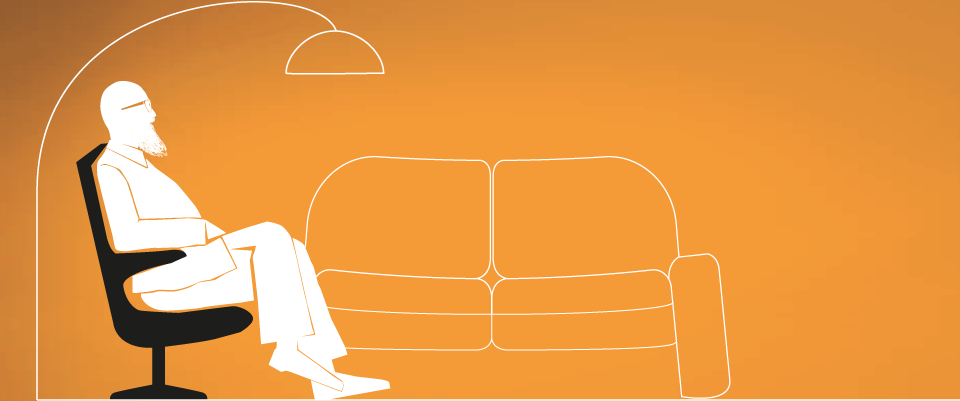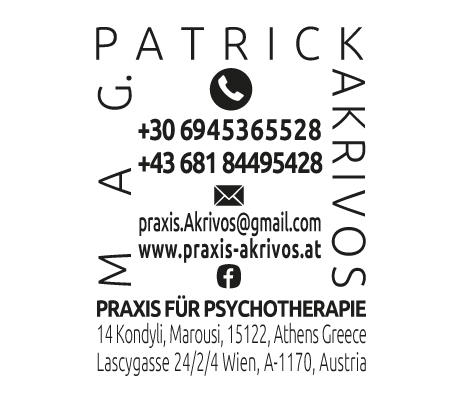I work to create a warm and accepting space to talk about and explore what goes on in your life, how you feel about it, what you hope to achieve and why it feels distressing for you.
I will be by your side and together we can explore what got you to where you are now and what might lie at the bottom of any distress you are experiencing. Together we can explore where you want to go, what is in your way and how you could find your way.
Contact me to book a “get to know each other” appointment to discuss any issue that troubles your mind and spirit.
Person Centered Psychotherapy: Discovering your own solutions!
The Person-Centered Approach was developed by the American Psychologist, Dr Carl Rogers. It takes a positive optimistic view of human nature and is a growth. A growth model assumes that people have within themselves vast resources for self-understanding and for altering their self-concepts, underlying attitudes, and self-directing behavior. The task of the psychotherapist is to facilitate this growth which is achieved by offering a non-judgmental, valuing environment where clients can feel free to truly be themselves.
The deepest human need is to feel safe, to feel being seen, recognized and being heard with respect.
PCA does not see the human being as being by nature problematic. On the contrary, it believes that human beings have an inborn capacity and tendency to grow and develop. Often it is described like a seed. Given the right conditions a seed can become a forest. PCA aims at cultivating these conditions in a safe and caring environment.
Person-centered Psychotherapy means we sit as equals, we talk about whatever you feel you would like to discuss, exploring the emotions and behaviors involved. We can build a relationship in which you feel heard and understood without judgment.
I sit alongside you as we explore your emotions and behaviors and we aim for you to understand what is going on, to feel more in control of your thoughts and to move forward however you feel is best, re-finding your calm and feeling the life you want to live is back within reach.
A therapy which uses a non-authoritative approach that allows clients to take more of a lead so that, in the process, they will discover their own solutions. The therapist acts as a compassionate facilitator, listening without judgment and acknowledging the client’s experience without moving the conversation in another direction. The therapist is there to encourage and support the client and to guide the therapeutic process without interrupting or interfering with the client’s process of self-discovery.
It is a form of therapy, which was developed by Carl Rogers and many others who followed in his footsteps, which emphasizes the importance of exploring the unique circumstances of a person's experience of distress, rather than offer out of the box solutions for a specific "problem".
Because I strongly believe in the importance of finding a unique solution for each client, I tend to not be too focused on finding a specific diagnosis. Labels like depressed, anxious, stressed, midlife crisis, can be very helpful as a first indicator for the nature of a person's distress, but they are usually just the most prominent sign, for what is usually a unique constellation of personal struggles or challenges that need to be understood in order for a person to be able to find their own solution for a way forward.
The Person-Centered Approach (PCA) is an approach to human relationships. It values attitudes such as: not judging others, trying to understand the experiences of others from their point of view, and fully honoring the uniqueness of the individuals we meet in a genuine and heartfelt way.
The development of the Person Centered Approach began in America in the 1940’s with the work of Rogers, Maslow and others. Dissatisfied with the mainstream psychological theories of the day, this pioneering group began to formulate a new psychology.
Rogers and his colleagues were interested in improving the quality of human life. They concerned themselves with questions of how we grow and develop, find meaning in experience and deal with distress. They also considered how we can foster loving, supportive relationships and lead more fulfilling lives.
These developments, which became known as ‘Humanistic Psychology’, influenced a number of approaches to psychotherapy. Perhaps the most widely practiced of these today is Person Centered Therapy.
Person-Centered Therapy
Carl Rogers was one of the leading founders of Humanistic Psychology. Today he is considered one of the most influential figures in the world of psychotherapy. The model of psychotherapy which he developed, known as Person Centered Therapy (PCT), was informed by the many thousands of hours he spent listening to his clients. He and his colleagues also engaged in many research projects. Through these studies they began to determine the aspects of psychotherapeutic relationships that were most effective in creating positive therapeutic change.
PCT differs from other psychotherapeutic approaches in that it places the client at the centre of the therapeutic process, rather than the knowledge and expertise of the therapist. For this reason, it was originally called client-centered therapy. In this humanistic approach, clients are regarded as possessing within themselves the potential for growth and development required to overcome difficulties.
PCT allows clients to progress at their own pace and in their own unique way, enabling them to be more accepting and embracing of they who are. Finally, they can be more authentically themselves, enhancing their quality of life and effectiveness in the world. In academic terms this is referred to as ‘self-actualization’.
A person-centered therapist’s role is to provide the therapeutic conditions in which this process of change can occur. By using the skills and attitudes that Rogers and his colleagues determined to be the most effective in facilitating lasting therapeutic change: attentive listening, empathy, being non-judgmental, and holding a positive belief in each individual’s unique capacities for growth and change, the therapist forms with the client a warm, safe and trusting relationship in which effective therapy can take place.
Person-Centered psychotherapy was the first talking therapy to be based on empirical research. In the 1940s and 50s Dr Carl Rogers and his colleagues audio-recorded therapy sessions to try and determine what is effective for clients. From this work, a comprehensive theory and practice was developed which has been continually expanded and refined and which is supported and validated by decades of research (e.g. recently: Cooper, Watson & Hölldampf, 2010; Elliott et al, 2013; Murphy & Joseph, 2016.)
Originally described as non-directive, this therapy moved away from the idea that the therapist was the expert and towards a theory that trusted the innate tendency (known as the actualizing tendency) of human beings to find fulfillment of their personal potentials. In the early years of person-centered therapy, the theory and practice were developed by researchers, theorists and practitioners such as Barbara Temaner Brodley, John Schlein, Jerold Bozarth and CH Patterson in the USA and, later, Pete Sanders and Tony Merry in the UK and Peter F Schmidt in Austria.
The basic tenets of person-centered therapy are the autonomy of the client and their capacity to self-heal and develop when the therapist provides a psychological environment based on specified conditions. This psychological environment is one in which the client feels free from threat, both physically and psychologically - usually in relationship with a therapist who is deeply understanding (empathic), accepting (having unconditional positive regard) and genuine (congruent).
Person-centered therapists believe that all of a client's thoughts, feelings and behavior are valid responses in the context of their previous and current experience and therefore will not usually diagnose or label clients. Practitioners such as Margaret Warner, Gary Prouty and, more recently, Kirshen Rundle have developed person-centered theory to describe phenomena and processes in a way that respects the individual. This understanding – for example of fragile process, dissociative process and pre-therapy – can enable practitioners to work with extremes of distress and disturbance.
Although initially developed as an approach to psychotherapy, Rogers and his colleagues came to believe that their ideas could be transferred to other areas where people were in relationships. For example teaching, management, childcare, patient care, conflict resolution.






